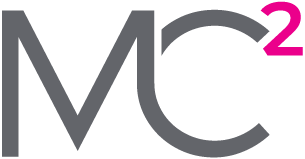Makers (and Creators) Spotlight
“Makers” is an interesting term. It’s an old-school term gaining new relevance. It’s returned to the zeitgeist as Etsy and similar sites have grown as places for people who handcraft stuff to find buyers away from traditional brick-and-mortar stores like Walmart and massive online stores like Amazon.
Why is this relevant? Well makers still need to find buyers, and in a digital era, building a secure e-commerce website, or going through the onerous task of setting-up on Amazon, or the also onerous task of getting carried by the likes of Walmart.com, are beyond the ability (and in many cases, interest) of most makers. Plus, if you are not making a mass-market product, there is probably more money to be had by NOT going to those big names.
Beyond that, through the marketing and development efforts of Etsy, Patreon, Kickstarter, IndieGoGo, Pinterest, and social media, connecting with buyers and actually selling them things, has gotten much easier. Additionally, if you’re smart, it’s gotten much more targetable, too.
Makers have a companion, sometimes interchangeable, term, in “Creators”. Creators is generally used for developers of digital content. That is NOT a hard and fast rule, just a general guideline.
So where do “makers” and “Creators” offer and market their content? The answer depends on three things:
- What you create
- Who your customers are, and
- What you are looking for in return
What you Create
Do you do woodcraft? Leather goods? Iron sculptures? How about cornhusk dolls? Hand embroidered linens? Etsy is the big name, but others like BigCartel, Aftcra, or MakerMade are there if Etsy isn’t what you’re looking for. There are also dozens, maybe hundreds of local, regional, or niche marketplaces for makers.
For digital creators, there is no single big (non-Amazon/Walmart) entity. Industries have their own narrowly focused marketplaces. Gumroad is built for authors, filmmakers, and musicians. Udemy is for selling video training. And a terrific, industry specific marketplace, DriveThruRPG is a digital marketplace for creators in the tabletop roleplaying games market. It is also expanding into novels.
But what if you need initial funding for a big (or not so big) creative project? Pre-sales would get you to production and delivery. Check out Kickstarter or IndieGoGo to get that product off the ground. There is some time risk, but if it doesn’t get launched, you don’t really lose much. The risk there is having a solid plan on how to handle it if you do get funded. And making sure you can deliver on your promises with the money raised.
Who are your customers?
It seems easy to identify the characteristics of your customers? But it’s often surprisingly nuanced. Let’s say you make wooden menu covers? Who buys them? The simplest answer is restaurant owners. And that is partially right. But wooden menu covers can be used for many things—notebooks, art pads, etc. And buyers can come from different, albeit related, places. Upscale cruiselines could be customers. Maybe wooden wedding albums are a potential market, and those buyers are very different from restauranteurs.
The reason this matters is that different buyers go to different places to sell their physical or digital wares. Some people still have ecommerce websites, but that is becoming increasingly less necessary (and adds a lot of complexity and risk).
Once you know your actual or potential buyers, research what marketplaces are best for you. You will quickly narrow it down to a few.
What are you looking for in return?
If you want to just sell products. Sites like Etsy are powerful and have a strong brand reputation. But what if you want to sell monthly subscriptions? Then, a Patreon account may be in the cards. What if you make various free or lost cost games? Maybe check out itch.io and set up a site there. There are so many marketplace/platform combinations that are niche that it’d be unproductive to list them all.
Narrow down your three questions and you will actually be partially to a business plan. Hobbyists and professional companies alike use a lot of these platforms. There are sellers that are pretty modern and there are luddites, too. Want to take BitCoin. It’s available. How about accept payments on a monthly basis? Easy enough. And these solutions help minimize the effort of running your own website if you’re a small maker or creator. But they come with their own concerns. You pay fees to them (and the fees vary from platform to platform), some platforms have complex relationships with vendors you already like. An example here is that Shopify stopped allowing collection of customer emails by Mailchimp not too far back. It was a difficult decision—keep Shopify or Mailchimp, but you couldn’t have both.
But these solutions, especially in the right combination, can be satisfying and help make you a successful maker.
Tell us your story, and show us what you create, on our social media, and we’ll happily share it. When you’re ready to talk about marketing your wares, we’re here for that too.

